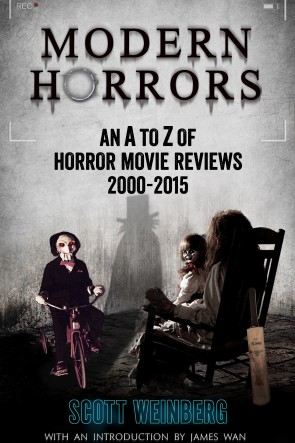Review: OPEN WINDOWS (2014){0}
Film criticism can be a dispiriting experience. It’s no fun wading through hours of rubbish, even when it’s well-meaning (or even well made). But nothing makes this critic more dismayed than when bad movies happen to good people. Case in point: Open Windows, the new film from Nacho Vigalondo (well, new-ish – the prolific Spanish writer-director has turned out the “Parallel Monsters” segment of V/H/S: Viral and a new short film, Salon de Belleza, since wrapping Open Windows), starring Elijah Wood and Sasha Grey. I like Vigalondo, mainly because of his terrific time travel thriller Timecrimes. I have a lot of time for Wood, who has made a lot of choices (post-Lord of the Rings) that push the boundaires of cinema: Sin City, the P.O.V. horror remake Maniac, and even the noble failure Grand Piano. I’ve no feelings one way or the other about Sasha Grey, but you have to respect a porn movie actress trying to make the switch to ‘straight’ roles. Unfortunately, all three have come a serious cropper with Open Windows.
Wood plays Nick Chambers, an avid fan of actress Jill Goddard (Grey), who has won a competition to meet his idol during her promotional rounds for the Village of the Damned-inspired sci-fi thriller Dark Sky: The Third Wave. As Nick sits in his hotel room, watching a live stream of the press conference, he receives a call from one of the film’s British PRs (inexplicably voiced by ‘proper Cockney geezer’ Neil Maskell), who informs Nick that his audience with Jill has been cancelled, at the actress’s request, but invites him to secretly observe her via a webcam hack. Instead of immediately telling this Cockney upstart to take a flying leap out of the nearest open window, Nick starts to follow his instructions to the letter, and soon finds himself embroiled in a preposterously complex cat-and-mouse game (or rather, a puppet-and-puppeteer one) which, in terms of complexity, makes Timecrimes look like an episode of Justin Time. (It also recalls the relationship between Elijah Wood’s pianist and John Cusack’s sniper, calling the shots via mobile phone in Grand Piano.)
Clearly, Vigalondo wanted to make a film about the relationship between celebrities and their fans in the online age, setting the entire film on the different ‘open windows’ of a laptop screen. It’s a conceit that worked brilliantly in Zachary Donohue’s The Den (2014), and recalls Mike Figgis’ four-screen experimental film Timecode (2000), but in the case of Open Windows, Vigalondo can’t resist zooming into one window or another, instead of letting the viewer’s eyes find the most compelling window (which they automatically would), creating almost constant non-diagetic movement which feels weirdly like an old ‘panned-and-scanned’ video where the telecine camera moved around of its own accord. As if that didn’t make it counter-productively hard to focus on what’s happening on the screen(s), Vigalondo’s script over-eggs the pudding so much it risks dying of cholesterol poisoning.
Despite an obviously game Elijah Wood, who has to carry virtually the entire film himself – sometimes literally, on a webcam-enabled laptop – Open Windows is an over-complicated mess of a movie, which becomes increasingly tedious as the overlong running time and over-stretched ideas fail to coalesce into anything meaningful.
It’s a good thing I didn’t watch it while sitting near any open windows, or I might just have flung myself out of one.
★★








